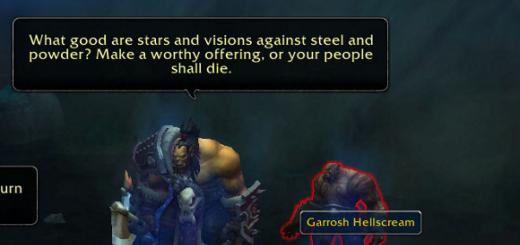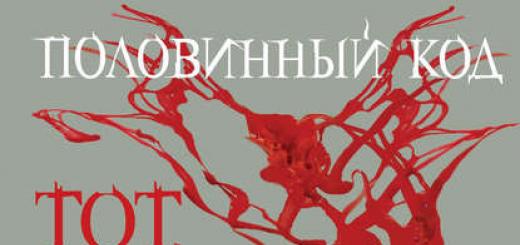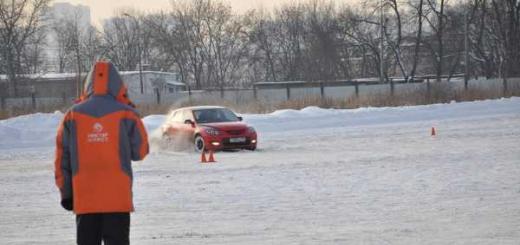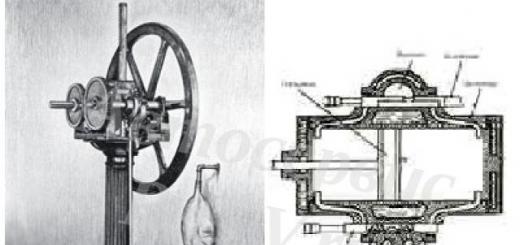“Only with people equal to oneself one should make acquaintance. You suffocate in a foreign environment. ”
He once described his reading technique thus: “The absorption of thought in the process of reading has reached a phenomenal ability in me. The gaze grasped seven or eight lines at once, and the mind comprehended the meaning at a speed corresponding to the speed of the eyes. Often a single word made it possible to grasp the meaning of a whole phrase. It is believed that Balzac read through the word. Reading this or that work, he always singled out the main thing and cut off the superfluous. Balzac also had a phenomenal memory. His contemporaries mentioned that the writer possessed all kinds of memory, distinctly remembered words and phrases in conversation, faces, things, as well as places he had been to, read about or heard about. In thirty minutes he could read a medium-sized novel, in this he can only be compared with John F. Kennedy, whose result was the same.

“Freedom without knowledge is always under threat; knowledge without freedom is always in vain.»
John Kennedy constantly developed the technique of speed reading. Prior to his presidential campaign, Kennedy could read a little over 280 words per minute, but during his tenure as president, his reading speed increased to a thousand words. However, he rarely read documents at such speed. Kennedy easily controlled his speed reading technique and devoted maximum attention to important materials. John Fitzgerald was not the only one among the US presidents who mastered the technique of speed reading.

“Work hard so that those tiny sparks of heavenly fire that are called conscience do not die in your soul.”
The first president of the United States not only loved and knew how to read books quickly, but also possessed oddities. He always read newspapers aloud, which greatly annoyed the people around him. He hummed and listened to the articles. Often re-read the same sentence several times. Washington explained his approach to reading the press by the fact that in this way he separated the truthful information from the conjectures of journalists and the meaning of the articles became clearer.

"Words are a great obstacle, you just need to know how to use them."
He is called the most reading of the world leaders. He read books voraciously, some sources report that Roosevelt can read an entire paragraph with one glance. Picking up a book, he always read it to the end, without being distracted for a minute. All his life he studied speed reading with unique fanaticism. It is known that the thirty-second President of the United States began the study of this area with fairly average indicators. He constantly worked to increase the attention span of words: first from four to six, and so on, bringing it up to eight, and later he needed only a quick glance to absorb the content of an entire paragraph of average size. Roosevelt read voraciously. The President read several books every day. He began reading early in the morning, reading a book before breakfast, and if in the evening he had no official business, then two more, or even three books. He did not bypass the attention of newspapers and magazines, reading them in a matter of minutes. By his own calculations, he read tens of thousands of books in his lifetime. Roosevelt had a phenomenal memory and studied foreign languages all his life. Hundreds of all the books he had ever read were in foreign languages. Also, thanks to memory, he could quote and retell in the smallest detail two or three pages read in a minute. Reading allowed him to easily establish contacts with absolutely different people. He could discuss any topic and keep up any conversation.
Interesting fact!
Phrase “I killed my grandmother this morning!” Franklin Delano Roosevelt returned the attention of an interlocutor who was distracted from the conversation. Roosevelt was a devoted fan of books and singled out great amount money to develop the publishing business. He also published his own books, of which there are more than two thousand. To date, Franklin Delano Roosevelt's speed reading technique is a separate technique.
The Soviet leaders also mastered the technique of speed reading and loved books.

"Of course, criticism is necessary or obligatory, but on one condition: if it is not fruitless."
Iosif Vissarionovich loved to read no less than Franklin Delano Roosevelt, according to some confessions of translators, during a break between negotiations at the Yalta Conference in 1945, they devoted several hours to talking about reading and books. The daily norm for the "father of nations" was five hundred pages of typographical text. In parallel, he could study several books a day. especially interesting books Stalin studied, making notes with a pencil and wrote out especially important points. At the disposal of the leader was a huge library of masterpieces of world classics, selected publications, collected works of Soviet authors, collections of Soviet encyclopedias, dictionaries and reference books. Stalin was very fond of rereading the works of A.S. Pushkin, was interested in his biography and the memoirs of his contemporaries about the great classics.
Of course, it was impossible to read the entire library. Most of the books Stalin simply looked through, which did not prevent him from learning their contents in detail and reasoning competently about the work and its author. He read historical books especially carefully, often re-reading them several times. Sitting at the table with several colored pencils, he made notes in the margins, underlined the phrases that interested him, sometimes he singled out entire paragraphs for memorization.

"Workers are drawn to knowledge because they need it to win."
He read diagonally, but thanks to his excellent memory he could easily retell the page he had just read close to the text. Lenin received the ability for speed reading and a phenomenal memory at birth, this helped him to read and remember a huge number of books, thousands of magazines and articles throughout his life.
The closest collaborator of Vladimir Ilyich, V.D. Bonch-Bruevich, said: “Vladimir Ilyich read in a completely special way. When I saw Lenin reading, it seemed to me that he did not read line after line, but looked page after page and quickly assimilated everything piercingly deeply and accurately: after a while he quoted separate phrases and paragraphs from memory, as if he had studied it for a long time and specially just read. This is what made it possible for Vladimir Ilyich to read such a huge number of books and articles that one cannot but be amazed. And Lenin's comrade-in-arms, revolutionary P.N. Lepeshinsky noted: “If Lenin read a book, his visual and mental apparatus worked with such speed that seemed like a miracle to outsiders. His receptivity in reading the book was phenomenal."
Lenin read almost everything: from world literature to serious scientific publications, and with equal success, both in Russian and in foreign languages. Once upon a question from O.B. Lepeshinskaya: “But how do you manage to read page after page so quickly?”, Vladimir Ilyich answered without hesitation that if he had read more slowly, he would not have had time to read all that he needed to get acquainted with. He memorized all the books he read in any language he knew with almost one hundred percent accuracy.
Among the revolutionaries, not only Lenin stood out for his excellent memory and speed reading. Nikolai Chernyshevsky also possessed incredible abilities.

"Scholarly literature saves people from ignorance, and elegant literature from rudeness and vulgarity."
Chernyshevsky read at least two books a day. He was fluent in several foreign languages. But his most important ability was the ability to instantly switch his attention from one object to another, creating the appearance of maintaining two centers of excitation in brain activity. This phenomenon was studied by the Russian academician V.N. Bekhterev, according to his statements public figure possessed unique properties brain. For Chernyshevsky it was a common and everyday thing to write an article and at the same time dictate to the secretary a translation into German of another work. During his life, Chernyshevsky published more than sixty books of various literary orientations and hundreds of scientific articles.
Russian writers and poets masterfully mastered speed reading, which caused delight and envy among some of their colleagues.

"I write for myself, but I print for money."
He had a special love for reading, he could read for days without stopping. Pushkin paid special attention to the biographies of prominent personalities, whom he knew by heart by the hundreds.
Brilliantly oriented in history. He remembered all the information that had ever touched and arose in life. Dates, numbers, geographic points, and names, surnames and genealogies aroused a particular interest in the genius for memorization and study.

“Love a book, it will make your life easier, it will help you sort out the colorful and stormy confusion of thoughts, feelings, events, it will teach you to respect a person and yourself, it inspires the mind and heart with a feeling of love for the world, for humanity.”
He read diagonally and mastered the technique of speed reading to perfection. Once, his friend and comrade A.S. Novikov-Priboy told about how Maxim Gorky read in his memoirs: “Having taken the first magazine, Alexei Maksimovich cut it open and began to either read or look through it. Gorky did not read, but seemed to simply glimpse the pages, from top to bottom, vertically. Having finished with the first magazine, Gorky set to work on the second, and everything repeated: he opened the page, from top to bottom, as if on stairs, descended it with his eyes, which took him less than a minute, and so again and again until he reached the last page . I put the magazine aside and took on the next one. Moreover, having started a dispute about speed reading and memorizing what was read with Gorky, A.S. Novikov-Priboy failed. The day after Maxim Gorky read a large pile of magazines, Alexei Silych arranged a small test, during which it turned out that Gorky not only remembers everything that he had read with such ease and speed the day before, but also the plot of the story read in the magazine, and the course of thought of the author's critical article. He supplemented everything he said with statements and epithets.

“Imagination is a great gift that has contributed so much to the development of mankind.”
He devoted most of his life to literature. I quickly and thoughtfully read books one after another and considered them my "slaves". Karl Marx said: "Books are my slaves." On every book he read, he always left notes, mercilessly turned corners, and always left bookmarks on important pages.
Speaking about outstanding Europeans and speed reading, it is impossible not to mention Napoleon.

"The ignoramus has a great advantage over an educated person - he is always pleased with himself."
Reading books from youth became for him vital necessity. He read at a speed of two thousand words per minute. Among his habits was reading a book of impressive size early in the morning. He often summarized what he read.
Katerina Goltzman
My revolutionary activity Vladimir Ulyanov started by participating in student gatherings at Kazan University. Subsequently, in Samara, and then in St. Petersburg, he begins to get involved in Marxism, having gone abroad, he makes acquaintance with the Emancipation of Labor group (G. Plekhanov, P. Axelrod, V. Zasulich).
Ulyanov gets acquainted with the local political literature and returns to Russia, obsessed with the idea of creating a revolutionary situation in the country. Together with Martov, Krzhizhanovsky, Starkov and others, he organizes the "Union of Struggle for the Emancipation of the Working Class", prepares the publication of the magazine.
Finally, he is arrested, and Ulyanov spends a year in the St. Petersburg preliminary room. In the Police Department Information we read:
“Brought to the inquiry as an accused, Ulyanov pleaded not guilty to belonging to the Social Democratic community, refused to give any explanation about his acquaintance with other people and claimed that he had never been in any circles of workers. Regarding the manuscripts found in his possession, of which the table of contents for the first issue of the Rabocheye Delo newspaper and two articles on strikes turned out to be written by Ulyanov, he declined to testify, but did not deny that these manuscripts and the article found in his possession about the strike in Yaroslavl were written them. Ulyanov explained his trip abroad by the desire to acquire some books, of which he could only indicate two works.
In prison, Ulyanov wrote and sent to his comrades several leaflets. But his main occupation there was the development of a program for the future of labor "The Development of Capitalism in Russia."
One of Ulyanov-Lenin's biographers writes: “The prison day was loaded with work, which was interrupted by lunch, a walk and dinner, and those necessary cell cleaning procedures that were mandatory for a prisoner. Time fled imperceptibly. The Bolsheviks, having come to power, no longer allowed such liberties: what kind of walk with dinner is there ?! Yes, for a pencil stub they were punished with a punishment cell with a concrete damp floor and rats!
And at the beginning of 1897, Ulyanov was administratively sent to Eastern Siberia under police surveillance for three years.
He was allowed to make the trip at his own expense, and in February Lenin leaves for Krasnoyarsk, then the terminus of the railway station.
Doctor V. Krutovsky, who was asked to help Ulyanov on the way, as he was returning from St. Petersburg to his Yenisei province, later recalled:
“... Starting from Tula, at every train stop I notice young man small in stature, rather thin, with a small wedge-shaped beard, very lively and agile, who keeps quarreling with the railway authorities, pointing out the terrible overcrowding of the train and demanding the attachment of an extra wagon.
Yes, it was Vladimir Ulyanov!
In Krasnoyarsk, Ulyanov-Lenin stayed with K. G. Popova, who sympathizes with the exiles and has a large two-story house; Lenin was given a room.
V. Krutovsky recommended Lenin to the local merchant Yudin, who had a library that could fit in eight large rooms. Lenin in his letters called it "a wonderful collection of books." On the shelves one could see all the famous historical, economic and philosophical works.
The city of Minusinsk was determined as Lenin's place of residence, where quite a lot of exiles lived, very different in political orientation, level of education, etc. There were here, in addition to Russians, Poles, Jews, Caucasians.
Lenin, who had never been friends or close friends with anyone, realized that life in a colony of exiles was not for him. He asked to go to another place, and the Minusinsk police officer suggested that he go to Shushenskoye - 5 6 versts south of Minusinsk. It was a large village with a volost government, a school, a church and three taverns. The peasants of Shushensky lived well, some had up to 100 acres of plowed land, 200 heads of cattle, thousands of sheep. The local intelligentsia was represented by a priest, two teachers, a paramedic and a volost clerk.
Lenin settled in a spacious peasant hut, in a separate room. He wrote to his mother:
“Today it’s exactly a month since I’ve been here, and I can repeat the same thing: I’m quite satisfied with the apartment and the table.”
Indeed, food in the village was very cheap, and Lenin could buy as much mutton and vegetables as he wanted.
N. Krupskaya wrote:
“Dear Maria Alexandrovna! We got to Shushenskoye, and I am fulfilling my promise - to write what Volodya looks like. In my opinion, he has recovered terribly, and his appearance is brilliant compared to what he was in St. Petersburg.
Lenin was indifferent to the local population, singled out only the peasant Ermolaev, who took him hunting and fishing. Then a mountain of lies will be written about his long conversations with the peasants, participation in their lives, etc.
The Pole I. Prominsky with his family and the Putilov worker O. Enberg arrive in Shushenskoye.
In May 1898, Nadezhda Krupskaya arrived with her mother, and in July she and Lenin got married in the Shushenskaya church.
A suitable apartment was also found - three rooms and a kitchen on the banks of Shusha. The young wife started family life: “Half a house with a garden was hired for four rubles. They lived as a family. In the summer no one could be found to help with the housework. And my mother and I fought with the Russian stove together. At first, it happened that I knocked over the soup with dumplings, which crumbled on the bottom. Then I got used to it."
Yes, things improved by autumn: “We hired a girl who now helps her mother with the housework and does all the hard work. We are going to plant a garden next year. Volodya has already contracted to dig the ridges. So he will have physical exercise. ”
The young family lived on state benefits, sums sent by relatives, and fees received by Lenin. The allowance was eight rubles, which was more than enough for food and an apartment.
In Shushenskoye, Lenin wrote more than thirty theoretical works: "The Tasks of the Russian Social Democrats", "The Development of Capitalism in Russia", etc.
But not everyone spent their days in labor. There were also holidays. For example, May 1:
“Prominsky came to us in the morning. He had a purely festive look, put on a clean collar and shone all over like a copper penny. We very quickly became infected with his mood and the three of us went to Enberg ... Oskar was excited by our arrival. We sat down in his room and began to sing in unison: "The day has come merry May ..." We sang in Russian, sang the same song in Polish and decided to go after dinner to celebrate May in the field. There were more of us in the field, already six people, since Prominsky captured his two sons ... In the evening everyone gathered with us and sang again ...
And in the evening, Ilyich and I somehow could not fall asleep, dreaming of powerful workers' demonstrations in which we would someday take part ... "
\
The term of Lenin's Siberian exile ended in January 1900. Entry into the capital cities was forbidden to him, and he chose Pskov as his place of residence.
And the Poles... Many old people had a very dismissive attitude towards this new exiled public. She was seen as a living embodiment of the failure of social democracy. We, on the contrary, saw in the mass influx of these workers a sign of our strength, taught the new exile to read and write, both simple and political.
I have loved reading books since I was a child, ever since I can remember. My first favorite was the Murzilka magazine. This cheerful character gave me a large number of interesting and educational days. Then there were fairy tales, just a myriad of fairy tales excited my imagination. The school already had science fiction, adventure and less often detective stories. At that time, of course, I did not think about any speed reading, but I often surprised librarians during the summer holidays, these wonderful "priestesses" of the sacred places of accumulation of various knowledge.
I learned and became interested in speed reading already at a fairly mature age. Suddenly, in the CP, I saw a small announcement about rational reading courses. Then they gave me a book on speed reading.... And then... it was one of the stories that I had already written about before and I told about it in interviews with magazines.
Speed reading is actually a great skill that should be acquired at a very early age. If I had mastered speed reading much earlier, who knows where it would have taken me later. Maybe I would absorb not only science fiction and adventure, but much more, including scientific knowledge.... But on the other hand, fantasy laid in me a large developing process of creative and non-standard thinking ...... What am I getting at ... Many people who own speed reading have become great people and entered history ... How do you know if you start teaching speed reading to children early age, then perhaps they will already enter into world history and you will be proud of them in old age...
Look who had the ability to speed reading:
How bitter used reading diagonally (speed reading technique)
So, according to the memoirs of A.S. Novikov-Priboy, Maxim Gorky read magazines: “Taking the first magazine, Alexei Maksimovich cut it up and began to either read or look through it: Gorky did not read, but seemed to simply glide through the pages, from top to bottom, vertically. the first magazine, Gorky set to the second, and everything repeated: he opened the page, from top to bottom, as if on stairs, descended it with his eyes, which took him less than a minute, and so on and on until he reached the last page. magazine and was taken for another.
Monk Raymond Lullia knew the tricks of speed reading ...
An Italian monk who lived in the Middle Ages, Raymond Lullia, proposed a reading system that allowed you to quickly read books, but until the 50s of the last century, speed reading was the lot of a few bright thinkers and politicians who developed this skill on their own. Among the famous people who owned speed reading, it is enough to list such great people as Honore de Balzac, Napoleon, Pushkin, Chernyshevsky, Lenin, John Kennedy.
Speed Reading and Stalin
Stalin's library contained almost all Russian literary classics: both individual books and Collected Works. There were especially many books by Pushkin and about Pushkin. In his library were all Russian and Soviet encyclopedias, big number dictionaries, especially Russian language dictionaries and dictionaries foreign words, various kinds of reference books.
Stalin looked through most of his books, and read many of them very carefully. Some books he read several times. Stalin read books, as a rule, with a pencil, and more often with several colored pencils in his hands and on the table. He underlined many phrases and paragraphs, made notes and inscriptions in the margins.
Iosif Vissarionovich looked through or read several books a day. He himself told some of the visitors to his office, pointing to a fresh stack of books on his desk: "This is my daily norm - 500 pages."
Roosevelt mastered speed reading
Franklin Delano Roosevelt was one of the quickest and most voracious readers of all government leaders. Various sources report that he was able to read an entire paragraph at a glance, completing any book, usually in one sitting. Roosevelt studied speed reading with fanaticism.
It is known that Roosevelt started in this area with average reading speeds, which he decided to seriously work on increasing. Among his first achievements was to increase the area originally covered by the suspension to four words, and subsequently Roosevelt increased this number to six and, further, to eight words.
Balzac's way of speed reading
This is how Balzac described his way of reading: “The absorption of thought in the process of reading has reached a phenomenal ability in me. The gaze grasped seven or eight lines at once, and the mind comprehended the meaning at a speed corresponding to the speed of the eyes. Often a single word made it possible to grasp the meaning of a whole phrase.
Chernyshevsky's speed reading skills
Chernyshevsky could simultaneously write an article and dictate to the secretary a translation from German language. Bekhterev explains this phenomenon by the ability to instantly switch his attention from one object to another, creating the appearance of maintaining two centers of excitation.
Speed reading and Lenin
Here is what one of the closest collaborators V.I. Lenina V.D. Bonch-Bruevich: “Vladimir Ilyich read in a completely special way. When I saw Lenin reading, it seemed to me that he did not read line after line, but looked page after page and quickly assimilated everything amazingly deeply and accurately: after a while he quoted separate phrases and paragraphs from memory, as if he had studied it for a long time and specially just read. This is precisely what made it possible for Vladimir Ilyich to read such an enormous number of books and articles that one cannot but be amazed.
P.N. Lepeshinsky says:
“If Lenin read a book, his visual and mental apparatus worked with such speed that seemed like a miracle to outsiders. His susceptibility when reading the book was phenomenal. "P.N. Lepeshinsky also conveys the memories of his wife, who sailed with V.I. Lenin on a steamer from Krasnoyarsk to Minusinsk into exile and watched Vladimir Ilyich read the book:" In the hands of he had some serious book (it seems on foreign language). In less than half a minute, his fingers turned over a new page. She wondered if he was reading line by line, or just gliding with his eyes over the pages of the book. Vladimir Ilyich, somewhat surprised by the question, replied with a smile: - Well, of course, I read ... And I read it very carefully, because the book is worth it. - But how do you manage to read page after page so quickly? Vladimir Ilyich replied that if he had read more slowly, he would not have had time to read all that he needed to get acquainted with.
Studies conducted at the Kharkov Pedagogical Institute showed that there is a correlation between reading speed and student achievement. Thus, among fast-reading students, 53% study well and excellently, and among slow-reading students, there are no more than 4% of such students.
Do you have shorthand? What about your children? What about your friends? And how many books do you manage to read in a day, week, month, year? What did you read in last time? Answer me?
How Gorky used reading diagonally
So, according to the memoirs of A.S. Novikov-Priboy, Maxim Gorky read magazines: “Having taken the first magazine, Alexei Maksimovich cut it up and began to either read or look through it: Gorky did not read, but seemed to simply glide through the pages, from top to bottom, vertically. Having finished with the first magazine, Gorky set to work on the second, and everything repeated: he opened the page, from top to bottom, as if on stairs, descended it with his eyes, which took him less than a minute, and so again and again until he reached the last page . I put the magazine aside and took on the next one.
Speed reading and Lenin Here is what one of the closest collaborators V.I. Lenina V.D. Bonch-Bruevich: “Vladimir Ilyich read in a completely special way. When I saw Lenin reading, it seemed to me that he did not read line after line, but looked page after page and quickly assimilated everything amazingly deeply and accurately: after a while he quoted separate phrases and paragraphs from memory, as if he had studied it for a long time and specially just read. This is precisely what made it possible for Vladimir Ilyich to read such an enormous number of books and articles that one cannot but be amazed. P.N. Lepeshinsky says: “If Lenin read a book, his visual and mental apparatus worked with such speed that seemed like a miracle to outsiders. His receptivity in reading the book was phenomenal.” P.N. Lepeshinsky also conveys the memories of his wife, who sailed with V.I. Lenin on a steamer from Krasnoyarsk to Minusinsk into exile and watched Vladimir Ilyich read a book: “He had some kind of serious book in his hands (it seems in a foreign language). In less than half a minute, his fingers turned over a new page. She wondered if he was reading line by line, or just gliding through the pages of a book with his eyes. Vladimir Ilyich, somewhat surprised by the question, replied with a smile: - Well, of course, I read ... And I read it very carefully, because the book is worth it. – But how do you manage to read page after page so quickly? Vladimir Ilyich replied that if he had read more slowly, he would not have had time to read all that he needed to get acquainted with.
Speed Reading and Stalin
Stalin's library contained almost all Russian literary classics: both individual books and Collected Works. There were especially many books by Pushkin and about Pushkin. His library contained all Russian and Soviet encyclopedias, a large number of dictionaries, especially dictionaries of the Russian language and dictionaries of foreign words, and various kinds of reference books.
Stalin looked through most of his books, and read many of them very carefully. Some books he read several times. Stalin read books, as a rule, with a pencil, and more often with several colored pencils in his hands and on the table. He underlined many phrases and paragraphs, made notes and inscriptions in the margins. Iosif Vissarionovich looked through or read several books a day. He himself told some of the visitors to his office, pointing to a fresh stack of books on his desk: "This is my daily norm - 500 pages."
Chernyshevsky's speed reading skills
Chernyshevsky could simultaneously write an article and dictate to the secretary a translation from German. Bekhterev explains this phenomenon by the ability to instantly switch his attention from one object to another, creating the appearance of maintaining two centers of excitation.
How to readWashington
Washington read the morning papers only aloud. He carefully listened to the text, mumbled and interfered with his neighbors. He claimed that reading aloud helped him understand the meaning of the text and separate the truth from the lies.
Monk Raymond Lullia knew the tricks of speed reading...
An Italian monk who lived in the Middle Ages, Raymond Lullia, proposed a reading system that allowed you to quickly read books, but until the 50s of the last century, speed reading was the lot of a few bright thinkers and politicians who developed this skill on their own. Among the famous people who owned speed reading, it is enough to list such great people as Honore de Balzac, Napoleon, Pushkin, Chernyshevsky, Lenin, John Kennedy.
Karl Marx made books "slaves"
Karl Marx said: "Books are my slaves" - and streaked the margins of each book he read with marks and notes, folding and laying the pages he needed.
Roosevelt mastered speed reading
Franklin Delano Roosevelt was one of the quickest and most voracious readers of all government leaders. Various sources report that he was able to read an entire paragraph at a glance, completing any book, usually in one sitting. Roosevelt studied speed reading with fanaticism.
It is known that Roosevelt started in this area with average reading speeds, which he decided to seriously work on increasing. Among his first achievements was to increase the area originally covered by the suspension to four words, and subsequently Roosevelt increased this number to six and, further, to eight words.
Balzac's way of speed reading
This is how Balzac described his way of reading: “The absorption of thought in the process of reading has reached a phenomenal ability in me. The gaze grasped seven or eight lines at once, and the mind comprehended the meaning at a speed corresponding to the speed of the eyes. Often a single word made it possible to grasp the meaning of a whole phrase.
Speed Reading and Martin Eden
“Clothes hung in a narrow closet, and there were books that no longer fit either on the table or under the table. While reading, Martin used to take notes, and they accumulated so much that he had to stretch ropes across the room and hang notebooks on them like drying linen. As a result, it became quite difficult to move around the room. Martin often cooked while sitting, because while the water was boiling or the meat was frying, he had time to read two or three pages.
He worked for three. He slept only five hours, and only iron health gave him the opportunity to endure the daily nineteen hours of hard work. Martin didn't waste a single minute. Behind the frame of the mirror, he plugged leaves with explanations of certain words and with the designation of their pronunciation: when he shaved or combed his hair, he repeated these words. The same leaves hung over the kerosene stove, and he memorized them when he cooked or washed the dishes. Sheets changed all the time. Having met an incomprehensible word while reading, he immediately climbed into the dictionary and wrote out the word on a piece of paper, which he hung on the wall or on the mirror. Martin carried leaflets with words in his pocket and looked into them on the street or while waiting in line in a shop. Martin applied this system not only to words. Reading the works of authors who have achieved fame, he noted the features of their style, presentation, plot construction, characteristic expressions, comparisons, witticisms - in a word, everything that could contribute to success. And he wrote and studied everything. He did not seek to imitate. He was only looking for some general principles. He compiled long lists of literary devices observed in various writers, which allowed him to draw general conclusions, and, starting from them, he developed his own new and original devices and learned to apply them with tact and measure. In the same way, he collected and recorded successful and colorful expressions from live speech - expressions that burned like fire, or, on the contrary, gently caressed the ear, standing out like bright spots among the dull desert of philistine chatter. Martin was always and everywhere looking for the principles underlying the phenomenon. He tried to understand how a phenomenon arises in order to be able to create it himself. Martin could only work consciously. Such was his nature; he could not work blindly, not knowing what was coming out from under his hands, relying only on chance and on the star of his talent. Random luck did not satisfy him. He wanted to know "how" and "why".
Hitler's speed reading system Curiously, Hitler also had his own reading system. In his free time and during his unemployment, he indiscriminately swallowed political and scientific and technical literature, which, in pamphlets, treatises, pamphlets and in fast-paced little books, quenches the thirst for knowledge. First, he leafed through the books, usually from the end, and checked whether they were worth reading. If it was worth it, he would read exactly what he needed, in order to defend in his own way with still other examples his ideas, which had been established since the days of Vienna and Munich. He worked intensively on publications only when they reported facts that, as he believed, should someday be ready as evidence. Every day, early in the morning or late in the evening, I worked through one significant book. Hitler did not study thoroughly, universally, but he never studied without diligence. He calmly considered only what he recognized. According to the secretary, in his personal library there were no classics, not a single work characterized by humanity and spirituality. What he sometimes regretted, that he was doomed to refuse to read fiction, and can only read scientific.
Interesting facts about Stalin.
The usual norm for Stalin to read literature was about 300 pages a day. He was constantly educating himself. For example, while being treated in the Caucasus, in 1931, in a letter to Nadezhda Aliluyeva, forgetting to inform about his health, he asks him to send textbooks on electrical engineering and ferrous metallurgy.
Stalin's level of education can be assessed by the number of books he read and studied. How much he read in his life, apparently, it will not be possible to establish. He was not a collector of books - he did not collect them, but selected them, i.e. in his library were only those books that he intended to somehow use in the future. But even those books that he selected are difficult to take into account. In his Kremlin apartment, the library contained, according to witnesses, several tens of thousands of volumes, but in 1941 this library was evacuated, and it is not known how many books were returned from it, since the library in the Kremlin was not restored. Subsequently, his books were in the dachas, and an outbuilding was built under the library in the Middle. Stalin collected 20,000 volumes for this library.
According to the current criteria, Stalin, according to the scientific results achieved, was a doctor of philosophy as early as 1920. His achievements in economics are even more brilliant and still unsurpassed by anyone.
Stalin always worked ahead of time, sometimes several decades ahead. His effectiveness as a leader was that he set very distant goals, and today's decisions became part of large-scale plans.
Under Stalin, the country was in the most difficult conditions, but in the shortest possible time it rushed forward sharply, and this means that at that time there were a lot of smart people in the country. And this is true, since Stalin gave the minds of the citizens of the USSR great value. He was the smartest person, and he was sick of being surrounded by fools, he wanted the whole country to be smart. The basis for the mind, for creativity is knowledge. Knowledge about everything. And so much has never been done to provide people with knowledge, to develop their minds, as under Stalin.
Stalin did not fight with vodka, he fought for people's free time. Amateur sports were developed extremely and precisely amateur. Each enterprise and institution had sports teams and athletes from its employees. More or less large enterprises were required to have and maintain stadiums. Everyone and everything played.
Stalin preferred only Tsinandali and Teliani wines. It happened that he drank cognac, but was simply not interested in vodka. From 1930 to 1953, the guards saw him “in zero gravity” only twice: at S.M. Shtemenko and at the wake of A.A. Zhdanov.
In all cities of the USSR, parks remained from Stalin's time. They were originally intended for mass recreation of people. They must have had a reading room and games rooms (chess, billiards), a beer and ice-cream shops, a dance floor and summer theaters.
During the first 10 years of being in the first echelons of power in the USSR, Stalin submitted his resignation three times.
Stalin looked like Lenin, but his fanaticism did not extend to Marx, but to the specific Soviet people - Stalin fanatically served him.
In the ideological struggle against Stalin, the Trotskyists simply had no chance. When Stalin proposed to Trotsky in 1927 to hold an all-party discussion, the results of the final all-party referendum were stunning for the Trotskyists. Of the 854,000 party members, 730,000 voted, of which 724,000 voted for Stalin's position and 6,000 for Trotsky.
In 1927, Stalin passed a resolution that the dachas of party workers could not be more than 3-4 rooms.
Stalin treated both the guards and the attendants very well. Quite often he invited them to the table, and once he saw that the sentry at the post was getting wet in the rain, he ordered to immediately build a fungus at this post. But it had nothing to do with their service. Here Stalin did not tolerate any concessions.
Stalin was very frugal with himself - he didn’t have anything superfluous from clothes, but he wore out what he had.
During the war, Stalin, as expected, sent his sons to the front.
IN Battle of Kursk Stalin found a way out hopeless situation: the Germans were going to use " technical novelty”- the Tiger and Panther tanks, against which our artillery was powerless. Stalin recalled his support for the development of A-IX-2 explosives and new experimental PTAB bombs, and gave the task: by May 15, i.e. by the time the roads are dry, make 800,000 of these bombs.
150 factories Soviet Union rushed to carry out this order and fulfilled. As a result, near Kursk, the German army was deprived of striking power by Stalin's tactical novelty - the PTAB-2.5-1.5 bomb.
Stalin uttered his famous phrase “cadres decide everything” in 1935 at a reception in honor of graduates of military academies: “We talk too much about the merits of leaders, about the merits of leaders. They are credited with everything, almost all of our achievements. This is, of course, false and wrong. It's not just the leaders. ... In order to set technology in motion and use it to the fullest, we need people who have mastered technology, we need cadres capable of mastering and using this technology according to all the rules of art ... That is why the old slogan ... must now be replaced by a new slogan. ..".
In 1943, Stalin said: “I know that after my death a pile of garbage will be put on my grave, but the wind of history will mercilessly dispel it!”










